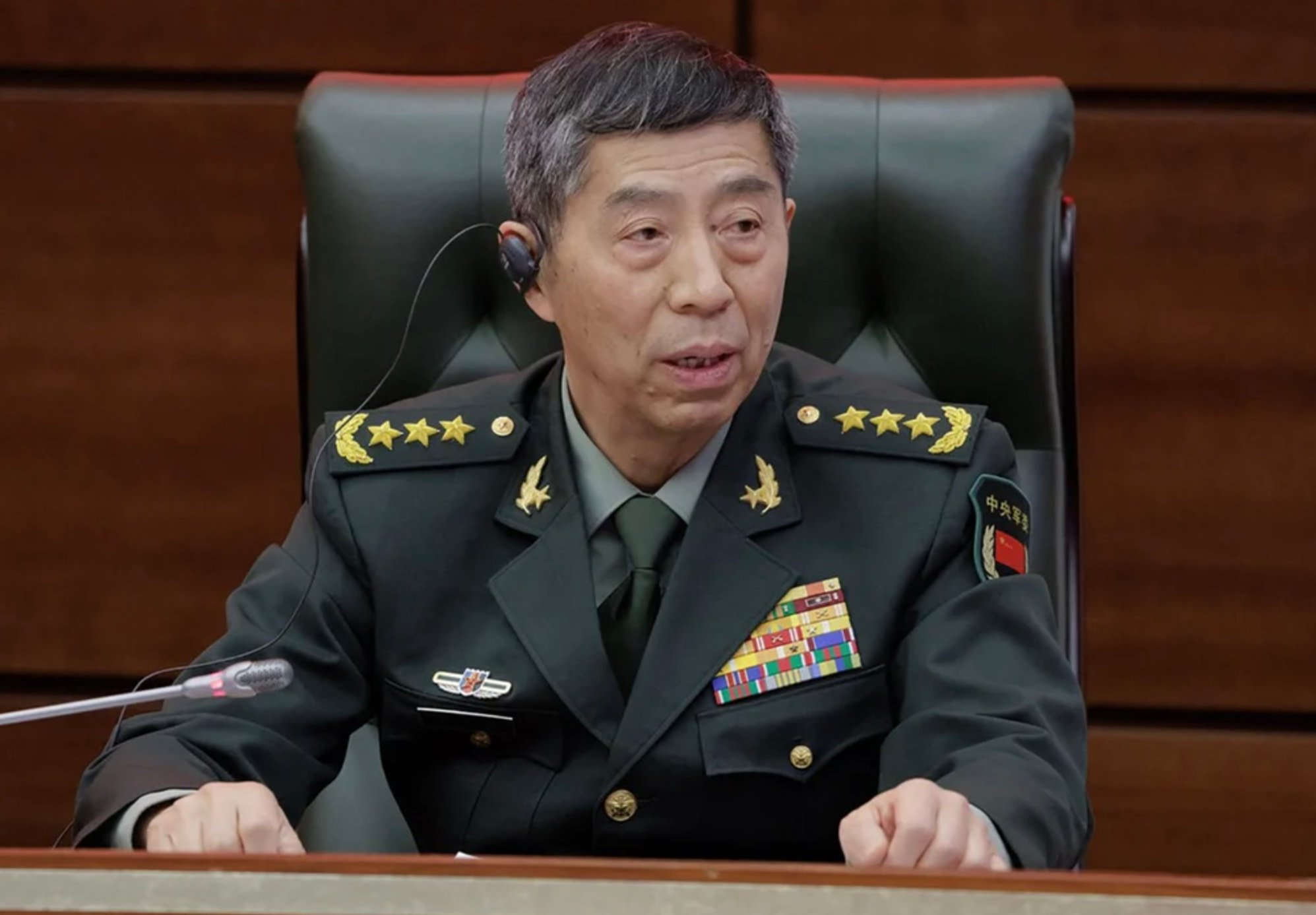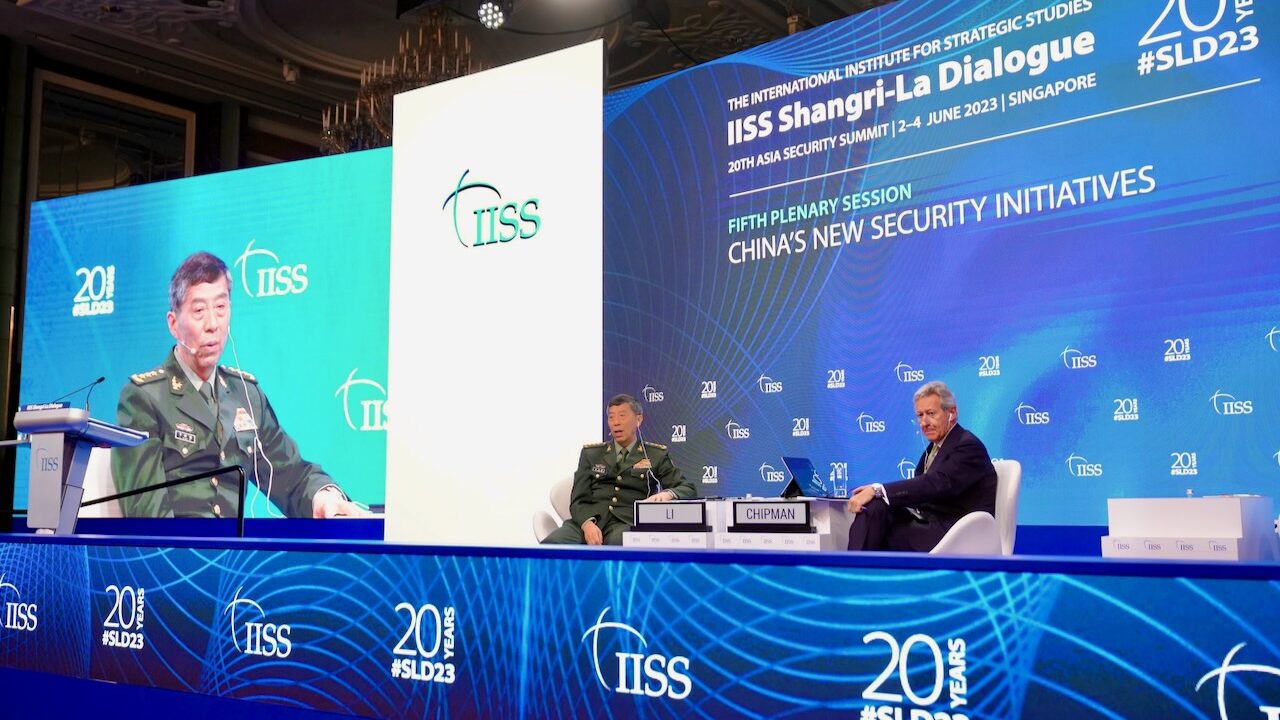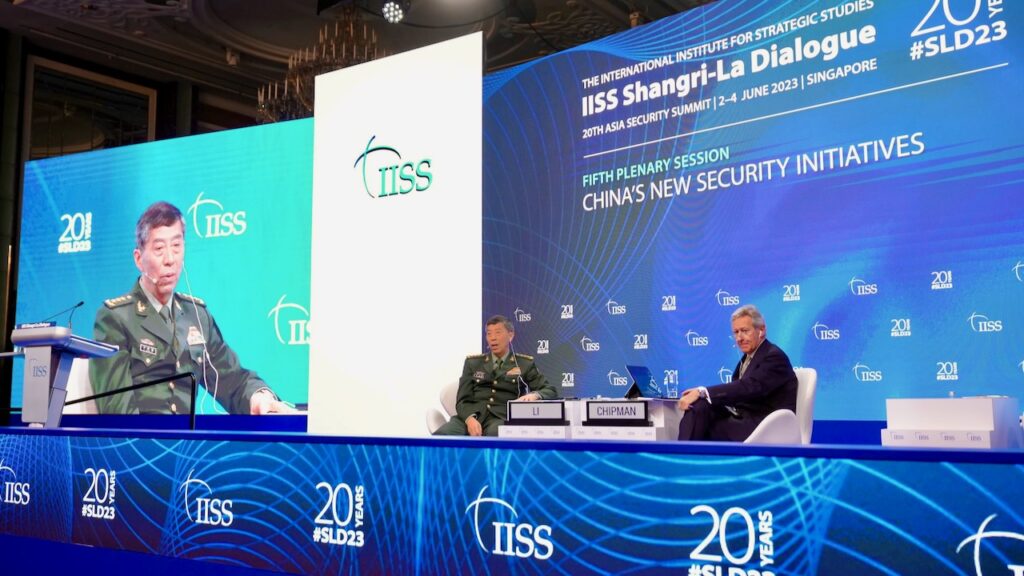beijingwalker
ELITE MEMBER

- Joined
- Nov 4, 2011
- Messages
- 65,195
- Reaction score
- -55
- Country
- Location
Chinese Defense Minister Li Tells Foreign Militaries, ‘Mind Your Own Business’
By: Dzirhan MahadzirJune 4, 2023 9:04 AM

Chinese defense minister Gen. Li Shangfu in April 2023. Russian Defense Ministry Photo
China’s Minister of National Defense warned foreign powers not to operate warships and aircraft close to its territorial waters and blamed Washington for recent provocative encounters between U.S. and Chinese units.
Gen. Li Shangfu, speaking on Sunday at the IISS Shangri-La Dialogue in Singapore, singled out a Western policy he called “hegemony of navigation” as the provocation for Saturday’s incident in the Taiwan Strait between guided-missile destroyer USS Chung-Hoon (DDG-93) and People’s Liberation Army Navy guided-missile destroyer CNS Suzhou (132) during a Taiwan Strait transit.
The best way to prevent similar incidents in the future was for naval vessels and fighter jets of countries to not carry out “close in actions” around other countries’ territories, he said.
“What’s the point of going there? For China, we always say mind your own business, take good care of your own vessels, your fighter jets, take good care of your own territorial airspace and waters, if that is the case, then I don’t think there will be future problems,” Li said in response to questions following his speech, “China’s New Security Initiatives.”
In contrast to international maritime law, China considers the Taiwan Strait an internal waterway and its own sovereign territory requiring prior permission for a warship to transit. Likewise, China claims sovereignty over significant portions of the South China Sea and East China Sea which are international waters and airspace under international law. The People’s Liberation Army routinely dispatches warships and fighter aircraft to intercept foreign military ships and aircraft based on violations of China’s territory.
Earlier in his speech, Li said other nations used the freedom of navigation and innocent passage as a pretext to exercise hegemony of navigation. The U.S. and its allies send warships and aircraft on freedom of navigation operations which test what Washington considers excessive territorial claims. Beijing has routinely called U.S. FONOps in the South China Sea destabilizing and provocative.
“As defense minister, every day, I see a lot of information about foreign vessels and fighter jets coming into areas near our territory,” Li said.
“They’re not here for innocent passage. They’re here for provocation.”
There have been several intercept incidents involving surveillance aircraft of the U.S., Australia and Canada with Chinese fighter aircraft in which the actions of the Chinese aircraft were deemed unsafe.
Video: A Chinese warship came within 150 yards of hitting American destroyer USS Chung-Hoon.
Embarked journalists captured the moment on video & witnessed the near collision.
“The fact this was announced over the radio prior to doing it clearly indicated it was intentional.” pic.twitter.com/cuksOabO15
— Ian Ellis (@ianellisjones) June 3, 2023
For its part, Chinese warships and aircraft routinely operate near the territorial waters of neighbors like Japan and the Philippines. In the past, Chinese warships have exercised the right in innocent passage through U.S. territorial waters in the Aleutians Islands in Alaska. Under innocent passage, warships can pass through territorial waters at no notice “so long as it is not prejudicial to the peace, good order or security of the coastal state,” according to Article 19 of the U.N. Law of the Sea Convention.
Li’s speech was his first address to an international audience since his appointment as Minister of National Defense on March 12. He spoke little about any new China security initiative save for a brief mention of China’s Global Security Initiative (GSI) that was announced in February.
During the question and answer session, Li only stated on the GSI that he had meetings with defense officials of eleven countries during the Shangri-La Dialogue and that they had agreed that their militaries should have deeper and more extensive interactions and thus China with the purpose of promoting more peace and stability in the region.
Li’s speech followed a pattern of past Chinese speeches at the Shangri-La Dialogue that indirectly criticize the United States by referring to it as “some country” that has created trouble in the region. China, on the other hand, was committed to the path of peaceful development. Li also reiterated the People’s Liberation Army’s red line on Taiwan.
“If anyone dares to separate China from Taiwan, the Chinese military will not hesitate for a second. We will fear no opponents and resolutely safeguard national sovereignty and territorial integrity at any cost,” Li said.
He said Beijing was open to military-to-military communication between Chinese and U.S. forces. The two countries and their militaries had smooth communication channels at lower levels but China had principles in regard to communication in that exchanges and communication had to be based on mutual respect without providing additional details.
U.S. Secretary of Defense Lloyd Austin and U.S. Indo-Pacific commander Adm. John Aquilino had said several times there is a lack of communication between the U.S. and Chinese defense establishments. On Saturday, Austin called for China to open direct communication channels between the two countries’ defense and military leaders.
Neither Li nor Austin held any discussions during the Shangri-La Dialogue. The pair met briefly on the sidelines for a quick handshake.

Chinese Defense Minister Li Tells Foreign Militaries, ‘Mind Your Own Business' - USNI News
China’s Minister of National Defense warned foreign powers not to operate warships and aircraft close to its territorial waters and blamed Washington for recent provocative encounters between U.S. and Chinese units. Gen. Li Shangfu, speaking on Sunday at the IISS Shangri-La Dialogue in...












